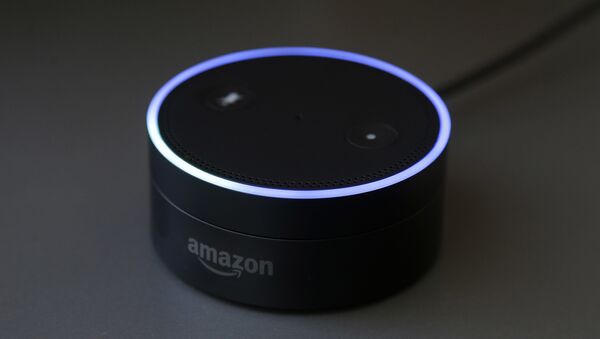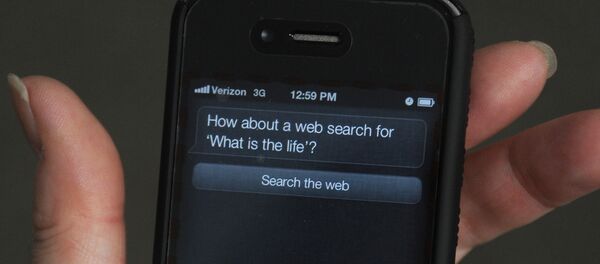Web developer and technologist Chris Garaffa told Radio Sputnik's Loud & Clear that in the wrong hands, such devices can perform dangerous actions, including opening the door to your house, wiring money from your bank account and even buying things online in your name.
Over the last two years, teams of researchers in the US and China have demonstrated their ability to activate the artificial intelligence systems on smart speakers and smart phones under laboratory conditions to open websites or call certain phone numbers. According to the New York Times, the researchers revealed they could embed commands into recordings of music or spoken text that are undetectable to human ears, but easily picked up by Amazon's Echo speaker, for example.
In addition, in 2016, a group of students from the University of California, Berkeley, and Georgetown University in Washington, DC, showed that they could hide secret commands in white noise played through YouTube videos or loudspeakers to get such devices to activate their "airplane mode" or open certain websites.
"This is where technology is going," Garaffa told hosts John Kiriakou and Brian Becker.
"The focused future of everything being connected certainly has its downsides and its dangers and that isn't going to be discussed when Amazon is trying to sell you its latest Echo product. When everything is connected to the internet, there are massive vulnerabilities," he explained.
"The best way to protect yourself is not to have any of these devices in your homes. At this point, we all have smart phones with Siri or Google's equivalent of it. We can certainly turn those off. We know that the National Security Agency (NSA) does have the ability to turn your microphone on without you knowing it. We should be aware that many smart TVs have cameras and microphones listening to and watching us," Garaffa said.
On March 7, 2017, the WikiLeaks online whistleblowing platform released a large archive of CIA-related classified documents that contain information on the tool the CIA used to load and execute implants targeting computers using Microsoft Windows operating systems. In addition, the files included details on the CIA's ability to identify, control and manipulate webcams and microphones in cars, smart TVs, smartphones and web browsers.
"They [the CIA] can take over your car, they can take over your TV," Garaffa told Radio Sputnik.
"The technology in and of itself is wonderful. This technology can be used to make everyday life easier, but when it's controlled by these corporations and government-related entities we can't trust — the technology is not evil, but the uses of it certainly are. This is just the new reality, but people need to be aware of what the issues are going to be, putting them in our homes," Garaffa explained.


